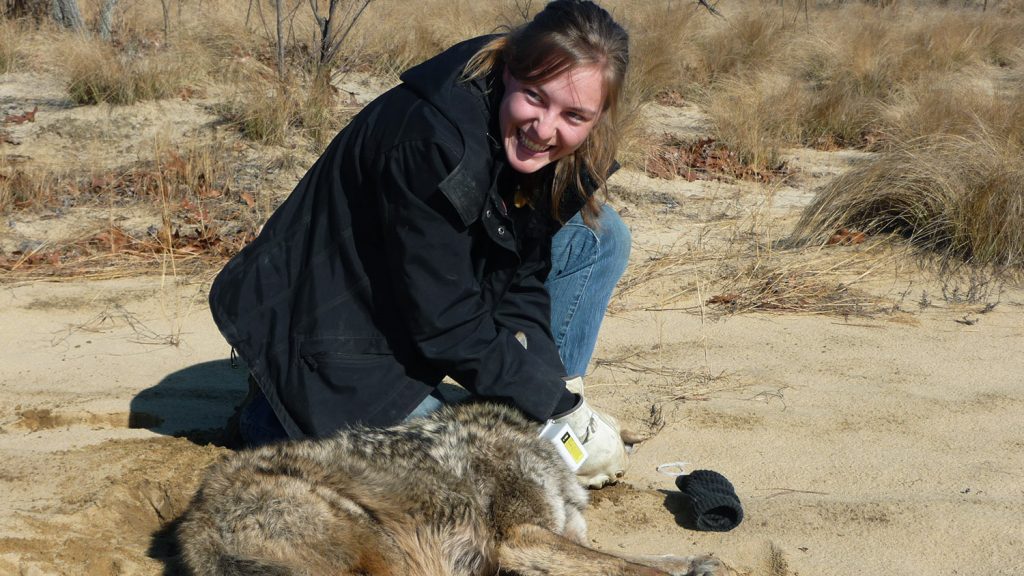Master of Science in Fisheries, Wildlife, and Conservation Biology

Faculty and students in Fisheries, Wildlife and Conservation Biology conduct applied research to help guide sustainable solutions for conservation challenges locally, regionally and globally. For a look at topics graduate students have pursued, please visit the Electronic Thesis and Dissertation Library of the NC State Graduate School.
Declaring A Minor
Master of Science in Fisheries, Wildlife, and Conservation Biology candidates must declare a minor within any established curriculum at NC State or as an interdisciplinary minor. A minor generally consists of at least nine graduate credits approved by your advisory committee’s minor faculty member. The courses must be taken during your degree program and all must be within a given curriculum or among the appropriate departments to satisfy a logical interdisciplinary minor.
Degree Requirements
The Master of Science in Fisheries, Wildlife, and Conservation Biology degree requires a minimum of 30 credits, including one to two hours of seminar and no more than six hours of research credits. A thesis is required. Further requirements may be imposed by the advisory committee.
The one to two hours of required seminar can be met by taking one or a combination of seminar classes approved by the student’s committee. We encourage students to take AEC 502, but other good options include FOR 801/803, and PRT 801.